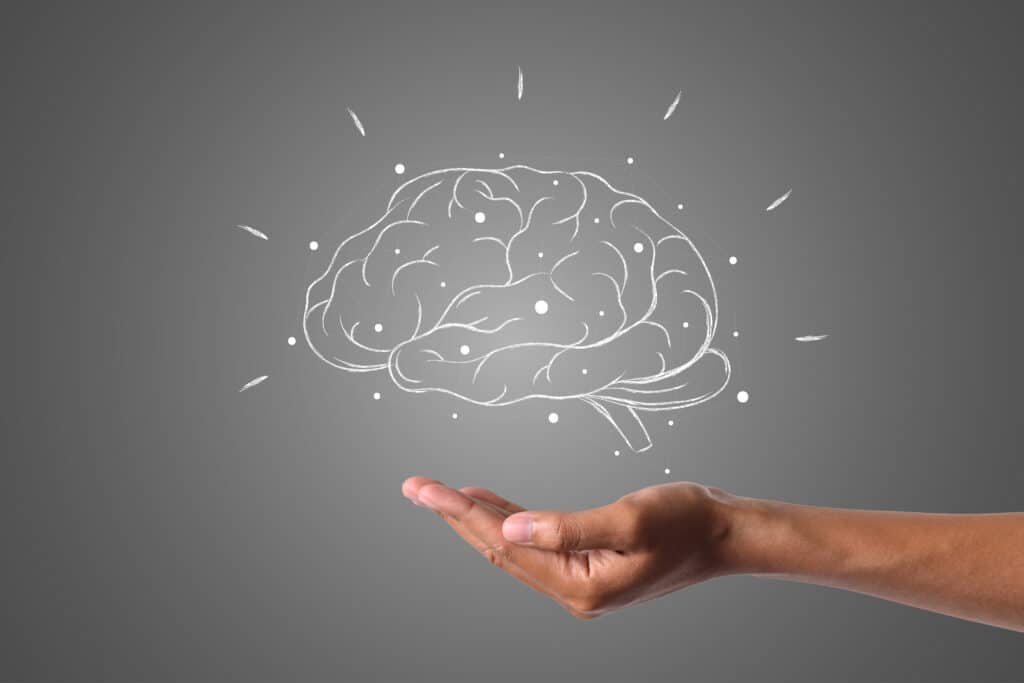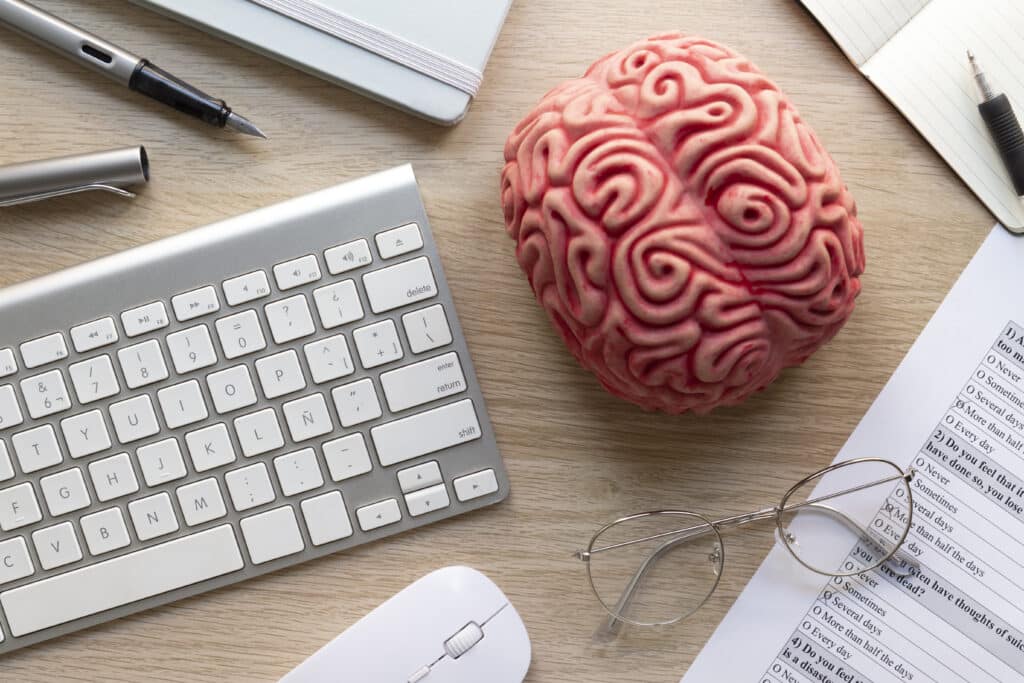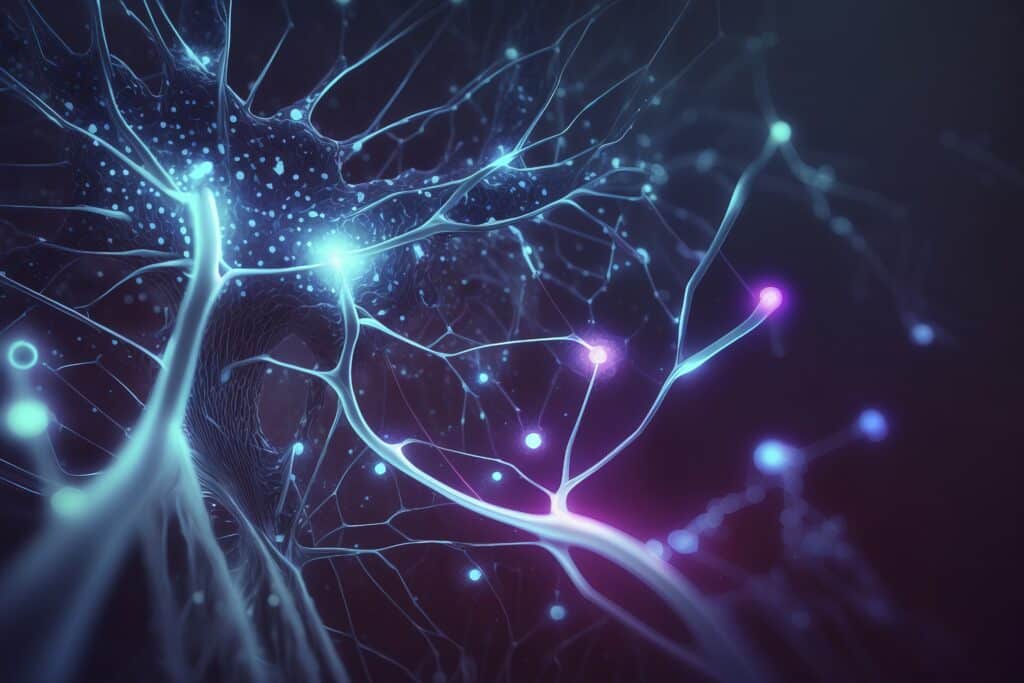Imagine Sarah, a 35-year-old teacher, who, for years, battled with unexplained anxiety and mood swings.
Despite various therapies, her mental health struggles persisted, casting a shadow over her daily life.
However, a turning point came when her doctor suggested exploring the gut-brain connection.
Intrigued, Sarah began a journey that not only transformed her understanding of mental health but also her approach to well-being.
This story of Sarah is not unique.
Introduction
In this blog, I’ll explore the intricate pathways of this connection, the role of the enteric nervous system—our body’s ‘second brain’, and the crucial impact of the gut microbiome on our mental state.
We’ll also uncover how dietary choices, like the Mediterranean diet, can be a key to managing mental health issues.
The gut-brain connection, an emerging field of scientific interest, has begun to unravel the profound interplay between our digestive system and mental health.
This connection, a complex communication network between the gut and the brain, influences not just our physical health but our emotions and behaviors as well.
Supported by groundbreaking research in neuroscience, immunology, and microbiology, this fascinating discovery is reshaping how we view mental health.
By understanding the scientific basis of the gut-brain connection and its practical implications, we can open new doors to mental wellness and a more balanced life, much like Sarah did.

The Gut-Brain Connection: An Overview
The gut-brain connection is a complex and fascinating aspect of human physiology that has garnered increasing interest in recent years, particularly in the field of neuroscience.
This connection is bidirectional, meaning that not only does the brain send signals to the gut, but the gut also communicates back to the brain.
This communication is facilitated through various means, including neurotransmitters, hormones, and the immune system, and it plays a significant role in both our mental and physical health.
Neurotransmitters and Hormones in Gut-Brain Communication:
Neurotransmitters, chemicals in the brain that transmit signals between nerve cells, also play a crucial role in the gut.
For instance, serotonin, a key neurotransmitter associated with feelings of happiness and well-being, is predominantly produced in the gut.
The gut’s production of serotonin and other neurotransmitters can influence mood and behavior, impacting mental health conditions such as anxiety and depression.
The Vagus Nerve: A Key Connector
The vagus nerve, one of the longest nerves in the body, is a primary route of communication between the gut and the brain.
It sends signals in both directions. For example, when the gut is stressed or inflamed, these signals can impact brain function, contributing to mood changes or stress responses.
The Role of the Immune System
The immune system also plays a role in the gut-brain axis.
The gut is a significant immune organ and can send signals to the brain that may influence mood and cognition.
This is particularly evident in the way gut inflammation can impact mental health.
Impact on Behavior and Mental Health
Research has shown that the gut-brain connection influences various behaviors, including feeding and mood regulation.
Changes in gut health, such as dysbiosis (an imbalance in the gut microbiome), can impact eating behaviors and emotional states.
For instance, cravings for certain foods can be influenced by the makeup of gut bacteria.
If you’re looking to improve your mental health and are interested in integrating a healthy diet into your lifestyle, check out our mental health facilities in Utah.
Recent Advancements
Advancements in neuroscience have helped illuminate this connection, revealing how alterations in the gut can affect the brain and vice versa.
For example, studies have shown that changes in the gut microbiome can impact mental health, leading to new approaches to treating conditions like depression and anxiety.
The gut-brain connection is an intricate system that significantly influences our overall well-being.
It highlights the importance of maintaining a healthy gut for optimal mental health and provides a new perspective on treating various mental health disorders.
Understanding this connection is key to developing more effective, holistic approaches to health and wellness.

The Enteric Nervous System: Our Second Brain
The Enteric Nervous System (ENS), often called the body’s “second brain,” is a remarkable and intricate part of the human nervous system.
Its complexity and autonomous functioning make it a subject of great interest in both neuroscience and gastroenterology.
Structure and Location
The ENS is located in the lining of the gastrointestinal (GI) tract, from the esophagus to the rectum.
It comprises two main layers of neurons: the myenteric plexus and the submucosal plexus.
The myenteric plexus primarily controls gut motility, while the submucosal plexus regulates digestive secretions and blood flow.
Together, these networks of over 100 million nerve cells are more extensive than those found in the spinal cord, highlighting the ENS’s vast control over gut functions.
Autonomy and Interaction with the Central Nervous System:
While the ENS can operate independently of the brain and spinal cord, it communicates extensively with the central nervous system (CNS).
This communication occurs through various neurotransmitters and signaling molecules.
The ENS not only sends sensory information to the brain about the state of the GI tract but also receives inputs from the CNS that can modulate its activities.
This bidirectional communication is facilitated by the vagus nerve, which plays a key role in relaying signals between the gut and the brain.
Role in Digestive Processes
The ENS is primarily responsible for the complex process of digestion.
It coordinates the contraction of smooth muscle to propel food through the GI tract (peristalsis), regulates the secretion of digestive enzymes and gastric acid for the breakdown of food, and controls blood flow to aid in nutrient absorption.
The ENS also helps in managing the delicate balance of fluids and electrolytes in the GI tract.
Impact on Mental Health
Beyond its digestive functions, the ENS also has implications for mental health.
The ENS produces a variety of neurotransmitters, including serotonin, which is vital for mood regulation.
This has led scientists to explore the role of the ENS in conditions like anxiety, depression, and stress-related disorders.
The concept of the “gut feeling” is partially attributed to the ENS, as it can respond to psychological stressors and send signals that affect our emotional state.
Future Research and Implications
Ongoing research into the ENS is unraveling more about its functions and connections to other bodily systems.
Understanding the ENS’s role in the gut-brain axis could lead to new treatments for both gastrointestinal and mental health disorders.
For instance, therapies targeting the ENS could potentially offer relief for conditions like irritable bowel syndrome (IBS) and anxiety.
In summary, the Enteric Nervous System is a complex and autonomous network that plays a vital role in our physical and mental well-being.
Its intricate connection with the CNS and its significant impact on digestive and mental health make it a critical area of study in understanding the full spectrum of human health.

Autonomy and Connection with the Central Nervous System
The ENS is unique because it can operate independently of the brain and the spinal cord.
It regulates the function of the gastrointestinal system, managing processes such as digestion, absorption of nutrients, and elimination of waste.
Despite its capacity for autonomy, the ENS is still intricately connected to the central nervous system (CNS).
This connection allows for a bidirectional communication pathway: the gut can inform the brain of any issues and vice versa.
This two-way communication is crucial for maintaining a healthy balance in the body’s various systems.
Role in Digestion and Gut Function
The ENS plays a pivotal role in the digestive process.
It controls the movement of food along the digestive tract through peristalsis (wave-like muscle contractions), regulates the release of digestive enzymes, and modulates blood flow to aid in the absorption of nutrients.
Its ability to function independently is observed in the way it coordinates digestion and gut movement, often without conscious input from the brain.
Impact on Emotional and Behavioral Responses
The ENS is also vital in influencing our emotional and mental state. It communicates with the CNS using various neurotransmitters, including serotonin, which is primarily produced in the gut.
This interaction can affect mood regulation, stress responses, and even our overall mental health.
Studies have shown that disturbances in the ENS can be linked to conditions such as anxiety, depression, and stress-related disorders.
Insights into Mental Health
Understanding the ENS offers valuable insights into treating various mental health conditions.
By studying how this ‘second brain’ communicates with the CNS, researchers can develop more targeted therapies for mental health disorders.
For instance, treatments focusing on gut health, like probiotics or diet modifications, can potentially improve mental health outcomes by influencing the ENS.
The Enteric Nervous System is not just a crucial component of our digestive health; it also plays a significant role in our mental and emotional well-being.
Its ability to operate both independently and in conjunction with the CNS makes it a key player in the gut-brain axis, offering new avenues for understanding and treating mental health conditions.

The Gut Microbiome: A Key Player in Mental Health
The human gut microbiome, a diverse and complex ecosystem within our digestive system, plays a crucial role in our overall health, particularly in mental health.
Groundbreaking research has unveiled fascinating insights into how this microbiome affects our emotions and mental well-being.
The Gut Microbiome and PTSD
A study from Brigham and Women’s Hospital and Harvard T.H. Chan School of Public Health has illuminated the relationship between the gut microbiome and post-traumatic stress disorder (PTSD).
This research found that adherence to a Mediterranean diet is associated with decreased PTSD symptoms.
This study highlights the significant impact that diet, specifically the Mediterranean diet, can have on the gut microbiome and, subsequently, on PTSD symptoms.
The interplay between diet, the microbiome, and mental health disorders like PTSD underscores the importance of nutritional approaches in mental health treatment and prevention (Harvard T.H. Chan School of Public Health, 2023).
Gut Microbiome and Various Psychiatric Disorders
Recent systematic reviews and meta-analyses have shown that changes in the gut microbiome are associated with several major psychiatric disorders.
These include psychosis, schizophrenia, major depressive disorder, bipolar disorder, and anxiety.
These studies have observed a decrease in anti-inflammatory short-chain fatty acid-producing bacterial genera and an increase in pro-inflammatory genera in individuals with these disorders.
Notably, the relative abundance of certain bacterial genera like Faecalibacterium and Coprococcus is decreased, while Eggerthella is increased in these conditions.
Additionally, variations in gut microbiome composition have been linked to social anxiety disorder, suggesting a broader impact of the microbiome on various mental health conditions (BMC Psychiatry, 2023).
Maternal Diet and Offspring’s Mental Health
Intriguingly, the gut microbiome’s influence extends to the neurodevelopment of offspring.
A study reported an association between a maternal high salt diet-induced gut microbial alteration and autism spectrum disorder (ASD)-like behavior in offspring.
This finding suggests that maternal diet and gut microbiome health can significantly impact the mental health of their children, highlighting the intergenerational influence of the gut microbiome (BMC Psychiatry, 2023).
The Gut Microbiome and Host Genetics
The gut microbiome also interacts with host genetics in psychiatric disorders.
It can influence transcription factor binding, which affects chromatin accessibility in the host’s body.
This two-way interaction further emphasizes the complex relationship between our gut microbiome and mental health (BMC Psychiatry, 2023).
These studies collectively paint a picture of the gut microbiome as a critical player in mental health, influencing everything from individual psychiatric conditions to intergenerational mental health.
They underscore the importance of considering the gut microbiome in both the understanding and treatment of mental health disorders, as well as in preventive strategies focusing on dietary choices.

Immune System: The Bridge Between Gut and Brain
The immune system’s role as a mediator between the gut and the brain is a critical aspect of understanding the intricate relationship between physical and mental health.
This connection, often referred to as the gut-brain axis, is significantly influenced by the immune responses that originate in the gut and their subsequent effects on brain health and function.
The Role of Gut-Associated Lymphoid Tissue (GALT)
The gut is home to a large part of the body’s immune system, primarily the gut-associated lymphoid tissue (GALT).
This extensive network of lymphoid tissues is responsible for monitoring and responding to potential threats like pathogens and toxins in the gut.
The GALT contains a high concentration of immune cells, including T cells, B cells, and macrophages, which play a key role in initiating immune responses.
Inflammation and Its Effects on the Brain
When the gut encounters harmful stimuli, the immune cells in the GALT can trigger an inflammatory response.
While inflammation is a protective mechanism, chronic or excessive inflammation in the gut can lead to adverse effects.
This prolonged inflammation can release cytokines and other inflammatory mediators into the bloodstream, which can cross the blood-brain barrier and affect brain function.
This process has been linked to a variety of mental health conditions, including depression, anxiety, and neurodegenerative diseases.
The Gut Microbiome and Immune Regulation
The gut microbiome, comprising trillions of bacteria, viruses, and other microorganisms, plays a crucial role in regulating the immune system.
A balanced microbiome promotes a healthy immune response, while dysbiosis (an imbalance in the gut microbiota) can lead to inappropriate immune reactions.
These imbalances can exacerbate inflammatory responses, further impacting brain health and mental well-being.
The Psychoneuroimmunology Perspective
The field of psychoneuroimmunology, which studies the interaction between psychological processes, the nervous system, and the immune system, offers valuable insights into the gut-brain-immune connection.
It underscores how psychological stress can influence gut health and, consequently, immune responses, thereby affecting mental health.
Implications for Mental Health Treatment
Understanding the immune system’s role in the gut-brain axis opens new avenues for treating mental health conditions.
For instance, interventions that target gut health, such as probiotics, dietary changes, and stress reduction techniques, can potentially modulate immune responses and improve mental health outcomes.
The immune system acts as a pivotal bridge between the gut and the brain, playing a significant role in both physical and mental health.
The interplay between gut health, immune responses, and brain function highlights the importance of a holistic approach to health.
This considers the interconnectedness of these systems in maintaining overall well-being and addressing mental health issues.

Scientific Basis of the Gut-Brain Connection
Recent studies have made significant strides in understanding the gut-brain connection.
For example, a study using a minimally invasive vibrating capsule has demonstrated the feasibility of studying gut feelings and their impact on the brain (Laureate Institute for Brain Research, 2023).
This breakthrough highlights the potential of novel approaches to understanding and managing mental health conditions.

Dietary Factors and Mental Health: Nourishing the Gut-Brain Connection
The role of diet in maintaining mental health, particularly through the gut-brain connection, is increasingly recognized as a pivotal aspect of overall health care.
Specific nutrients and dietary patterns have been identified for their beneficial impact on mental health outcomes, largely due to their influence on the gut microbiome and the gut-brain axis.
Omega-3 Fatty Acids
Omega-3 fatty acids found abundantly in fish, flaxseeds, and walnuts, are crucial for brain health.
These fatty acids are known to reduce inflammation in the body, which is a key factor in mental health conditions like depression and anxiety.
Omega-3s also contribute to the structural integrity of brain cells, enhancing brain function and mood regulation.
Research has shown that regular consumption of omega-3-rich foods can lead to improved mood and cognitive function, and may even play a role in preventing certain mental health disorders.
B Vitamins
B vitamins, including B12, B6, and folate, play significant roles in the functioning of the nervous system.
They are vital for the production and regulation of neurotransmitters like serotonin and dopamine, which are directly linked to mood regulation and the prevention of mood disorders.
Deficiencies in these vitamins have been linked to increased risks of depression and mood disturbances.
Foods rich in B vitamins, such as leafy greens, legumes, whole grains, and lean meats, are recommended for maintaining optimal mental health.
Probiotics
Probiotics, beneficial bacteria found in fermented foods like yogurt, kefir, and sauerkraut, are important for gut health.
They help in balancing the gut microbiome, which is crucial for the gut-brain connection.
A healthy gut microbiome can improve the communication between the gut and the brain, positively impacting mental health.
Studies have shown that probiotics can help reduce anxiety and depression symptoms, improve mood, and even enhance cognitive function.
Influence on the Gut Microbiome
These dietary components—omega-3 fatty acids, B vitamins, and probiotics—contribute to a healthy and diverse gut microbiome.
A well-balanced gut microbiome is essential for effective communication along the gut-brain axis.
It can influence the body’s stress response, regulate mood, and impact the risk of developing mental health conditions.
The significance of diet in managing mental health cannot be overstated.
Incorporating omega-3 fatty acids, B vitamins, and probiotics into one’s diet can foster a healthier gut-brain connection, leading to improved mental well-being.
As research continues to uncover the intricate relationships between diet, the gut microbiome, and mental health, the role of nutritional psychiatry becomes increasingly important in the prevention and treatment of mental health disorders.

The Mediterranean Diet: Nourishing the Mind and Body
The Mediterranean diet, celebrated for its rich array of fruits, vegetables, whole grains, and healthy fats, is much more than a mere eating plan.
It’s a lifestyle embraced in countries bordering the Mediterranean Sea.
This diet is renowned for its potential benefits on physical and mental health, particularly in fostering a healthy gut microbiome, which is pivotal for a strong gut-brain connection.
At Corner Canyon Recovery Center our diet consists of meals prepared around the Mediterranean Diet.
Key Components of the Mediterranean Diet
Sarah began her transformation by starting with her diet. With some research on the web and advice from a nutritionist, she found resources with menu and recipe suggestions. These include:
Fruits and Vegetables: A cornerstone of the diet, these are packed with vitamins, minerals, and fiber, promoting a healthy gut microbiome.
Whole Grains: Foods like whole wheat, oats, brown rice, and barley provide essential fiber and nutrients.
Healthy Fats: Olive oil, avocados, and nuts, rich in monounsaturated and polyunsaturated fats, support brain health.
Lean Proteins: Fish, particularly fatty fish like salmon, and lean poultry are preferred over red meat.
Legumes and Nuts: Sources of plant-based protein and fiber, also contribute to gut health.
Herbs and Spices: Used for flavoring meals instead of salt.
Moderate Dairy and Wine: Consumed in moderation, with a focus on fermented dairy like yogurt and cheese.
Benefits for Gut Health and Mental Health
The high fiber content from fruits, vegetables, and whole grains supports a diverse and healthy gut microbiome.
This diversity is crucial for maintaining a balanced gut environment, which directly impacts mental health through the gut-brain axis.
The anti-inflammatory properties of omega-3 fatty acids, found in fatty fish, and antioxidants present in fruits and vegetables, also contribute to brain health and cognitive function.
Sample Menus
Breakfast: Greek yogurt topped with honey, almonds, and fresh berries; whole-grain toast; herbal tea or black coffee.
Lunch: Quinoa salad with mixed greens, cherry tomatoes, cucumber, feta cheese, and olive oil vinaigrette; grilled chicken breast; a piece of fruit for dessert.
Dinner: Baked salmon with a squeeze of lemon, served with a side of roasted vegetables (like zucchini, bell peppers, and eggplant) and a small portion of whole wheat pasta or brown rice.
Snacks: Hummus with carrot and cucumber sticks; a handful of nuts; or a small serving of olives.
In summary, the Mediterranean diet is not just beneficial for physical health but also mental well-being.
Its emphasis on plant-based foods, healthy fats, and lean proteins supports a healthy gut microbiome, crucial for a robust gut-brain connection.
By incorporating the principles of the Mediterranean diet into daily meals, one can nourish the body and mind concurrently.

Key Takeaways
- Sarah discovered that the gut-brain connection offers valuable insights into managing mental health issues.
- Understanding this complex relationship and incorporating dietary changes can lead to improved mental well-being.
- Continued research in this field promises to uncover more connections between our gut health and mental state.

Sources
Trafton, A. 2023. Unraveling connections between the brain and gut. MIT News
BWH Communications. 2023. Expanding our understanding of gut feelings. Harvard Gazette
Laureate Institute for Brain Research. 2023. Groundbreaking Study Reveals New Insights into Human Gut-Brain Connection












